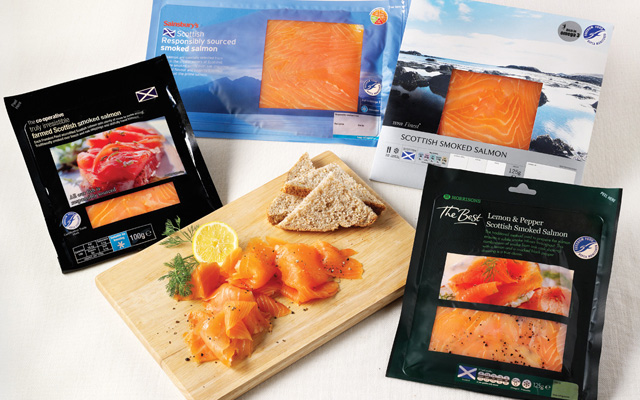
Freedom Food has rejected the suggestion that its high welfare eggs and other farmed foods are only for wealthy consumers.
The accusation was made during a BBC television exploration of competing farm welfare standards, when Happy Egg producer Jean-Paul Michalski and RSPCA senior farm animal scientist Alice Clark spoke about the positive benefits of Freedom Food accreditation. They found themselves competing on screen with Red Tractor, which was claiming that its animal welfare standards were more effective at providing good standards of animal welfare, but at a cheaper price for consumers.
“The Red Tractor standards are inspected on far more farms than the Freedom Food or Soil Association standards, so even if our standards don’t match up to them on welfare, in practice they are implemented on far more farms,” said Emma Surman, standards advisor with Red Tractor. She made the claim on the popular BBC Countryfile programme, which said it was looking into what appeared to be confusion between conflicting animal welfare schemes. Emma said that far more animals benefited from the Red Tractor standard because the scheme was implemented far more broadly. “What is best, to have aspirational standards that only a few farmers will be inspected to and meet, and few people can afford to pay for, or have good animal welfare standards that are practised on far more farms, and the general public can afford to buy the products,” she said.
Red Tractor says that 85 per cent of the overall market is covered by its mark, compared with only five per cent for Freedom Food. But Alice Clark told the Countryfile team that in certain food sectors Freedom Food enjoyed a much bigger share of the market. One of those sectors was egg production, she said. “It has real success in certain sectors. If you are looking at laying hens – the eggs that we eat – that’s actually taken up about 50 per cent of the UK market,” she said, “pigs nearly 30 per cent and salmon, farmed salmon, is now more than 60 per cent Freedom Food.”
She agreed that Freedom Food accreditation was a gold standard for welfare, but one that was achievable, even though Freedom Food did aim to stretch the limits of what was achievable. However, she rejected the suggestion that Freedom Food labelled products were only for wealthy consumers.
“I don’t think so, not at all,” she said. “We are now seeing Freedom Food labelled products on more shelves than ever before in the supermarkets, so that is coming from farms that are inspected to RSPCA inspected welfare standards. They cover a real wide range of the prices on offer from the basics and value ranges in the supermarkets, which is really good news.” Alice said, “We are also seeing on the high street a much wider audience coming into the fast food chains as well.”
Also taking part in the programme was Jean-Paul Michalski, who as manager of one of Noble Food’s own farms just outside Tring in Hertfordshire was one of the pioneer producers at the launch of the company’s Happy Egg high welfare brand of free range eggs. He explained why the Freedom Food label was highly regarded.
“RSPCA Freedom Food is an organisation that is synonymous with high levels of bird welfare,” he said. “A happy chicken is the way I look after my birds, it’s about being a stockman, it’s about the daily routine when I’m walking the birds, when I am looking at them, making sure they are healthy, making sure that I feel they are happy,” he said. “I am a stockperson at heart. I look after chickens. That is what I do and I like to do that to the best of my ability. The things I can do to make the lives of these hens better, and also for them to produce more eggs for me if I do so, is fantastic. That’s why all the effort and all the work I do goes towards making sure that these hens are as happy as they can possibly be.”
Andrea Stanley is an assessor with Freedom Food, who goes out to farms to judge the welfare of laying flocks operating under the Freedom Food scheme. She told the Countryfile team that the birds’ health was not just about their physical wellbeing but also about their psychological wellbeing. “Happy hens lay more eggs and they are less likely to disease,” she said.
Freedom Food was launched in 1994 when initial welfare standards were established for laying hens and pigs. Standards for beef, dairy cattle and sheep followed in 1995, chicken and turkey in 1996 and ducks and hatcheries in 1999. In 2002 Freedom Food launched its standards for farmed Atlantic salmon.
Of the 900 million farmed animals in the United Kingdom, according to figures for 2011, just over 75 million were kept under the Freedom Food scheme. The number of animals in the scheme increased by nearly 35 per cent from 2006, when there were 49 million farm animals in the United Kingdom covered by Freedom Food. The increase in the laying egg sector was much higher – from 11.6 million to 17.8 million, an increase of 53 per cent.
Freedom Food said that in 2011 it received 524 new applications for membership, of which 363 were successful. Membership costs from £119 plus VAT and is dependent on the size of the company or site. Freedom Food also charges a licence fee on labelled produce. The fee is 0.3 per cent of wholesale value – the equivalent of four pence on a case of 30 dozen eggs.
